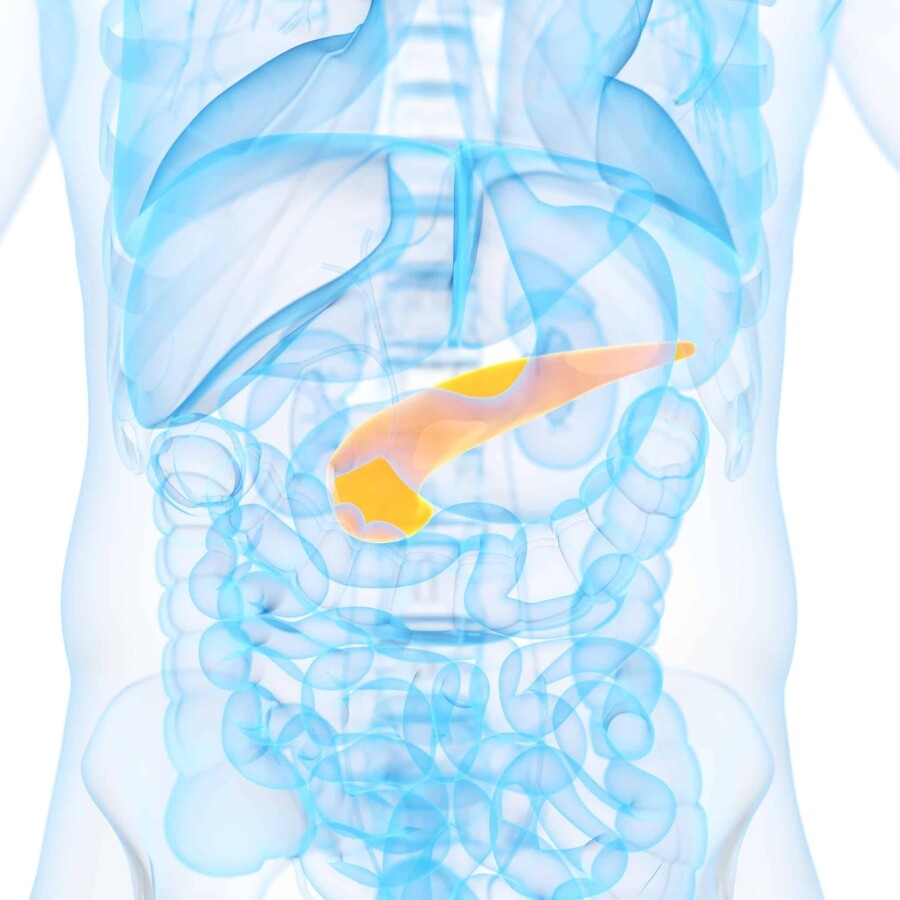Does the pancreas produce insulin? Many have asked this question before, especially patients that are struggling with diabetes.
This article will provide you with a greater understanding of the correlation between the pancreas and insulin, when it produces insulin, and much more. But first, here’s a quick summary answer to get us going.
Does the Pancreas Produce Insulin? Yes. Insulin is a hormone that the pancreas produces and is a part of the endocrine system. The pancreas produces insulin when it detects an increase in the blood sugar levels. It also reduces the production of insulin and produces more glucagon when the blood sugar levels are too low.
There’s the quick answer, but it’s a finely balanced system, and there are several things that can go wrong. So, let’s get into some more detail.
Does the Pancreas Produce Insulin?
Does the pancreas produce insulin? The primary function of the pancreas is to produce hormones. The pancreas produces hormones in cells that detect changes in one’s blood sugar levels.
These endocrine cells are built and gathered as clusters known as “Islets of Langerhans.”
What these cells do is monitor the bloodstream and react accordingly. This means the pancreas will release hormones when it’s necessary, depending on the amount of glucose detected in the blood.
Whenever you eat food, the carbohydrate content in the food is broken down into glucose. The glucose is then absorbed through the stomach and small intestines, then passed into the bloodstream.
Once glucose is absorbed into the bloodstream, a person’s blood sugar level will start to rise. When the pancreas detects this increase in glucose, it starts to produce and release insulin.
Among the many cells in the pancreas, insulin is produced by the beta cells in response to a rise in glucose levels.
Insulin works by acting like a lock and key mechanism with the body’s cells. Insulin interacts with cells, allowing the cells to uptake glucose from the bloodstream. Thus, high blood sugar levels are prevented or treated by this method.
Once the glucose is absorbed into the body’s cells, it’s used as energy to fuel the cells for doing different jobs and tasks.
In parallel to this, some of the absorbed glucose is stored as glycogen. This storage usually is contained in places like fat, muscle, and the liver, and other tissues in the body. The stores of glycogen can later be converted into glucose and released when the body needs a source of energy.
When the glucose in the blood is dropped to normal levels, the pancreas will stop producing insulin.
The pancreas sits very close to the stomach. So, as soon as the food is eaten, the pancreas firstly produces digestive enzymes into the bowel to help in breaking down food.
And when the food is broken down and digested, the glucose levels in the blood begin to rise, triggering the pancreas to produce insulin to stabilize the blood sugar levels.
How Does the Pancreas Moderate the Production of Insulin?
The pancreas needs to and does produce insulin to normalize blood sugar levels. So, what does the pancreas do when the blood sugar levels are already low in the blood?
When the blood sugar levels are low, the pancreas will detect the low blood sugar levels and slow the production of insulin and increase the output of glucagon. Read more about the causes of low blood sugar levels.
In a nutshell, glucagon has the opposite effect of insulin. Glucagon works by breaking down glycogen (stored in the form of glucose by the release of insulin) in the liver. This causes a release of glucose into the bloodstream to raise the blood sugar levels to normal levels.
With the pancreas slowing down the production of insulin, glucose will not be absorbed from the blood. So, blood sugar can be stabilized to more healthy levels.
What Can Go Wrong With Pancreas Producing Insulin?
If the pancreas begins to behave abnormally, or if blood sugar levels become uncontrolled, then this could be a sign of diabetes.
There are two main types of diabetes that can impact the way the pancreas works.
Type One Diabetes and the Pancreas
The immune system attacks the cells in the islets of Langerhans (the cluster of cells where the pancreas produces insulin).
This attack breaks down the ability of the pancreas to produce insulin, which means blood sugar levels cannot be regulated. So, there’s no insulin production to absorb the excess glucose from the blood. Thus, the patient would require an outside source of insulin to be administered.
Type Two Diabetes and the Pancreas
In type two diabetes, the body’s cells build resistance to insulin. This means that the body can’t react to the normal effect of insulin, which is to absorb glucose from the blood into the body cells.
This will present a “lack of insulin” situation, and the body will need more insulin to bring down the blood sugar levels – more than the pancreas can keep up with.
The development of this condition could lead to the pancreas losing its insulin-producing beta cells. If this condition is not treated early on, it could then require insulin to be administered. Many individuals with type 2 diabetes are able to treat their condition with oral medications along with diet and exercise.
So Finally
Does the pancreas produce insulin? Yes it does. In fact, the pancreas plays a crucial role in insulin production and monitoring. Any abnormalities with this process could have consequences that lead to a person requiring insulin treatment or other medication.
In this instance, prevention is far better than cure, so avoiding this from happening should be your priority.
If you’re already living with diabetes and struggling to afford your insulin medication, then Prescription Hope may be able to help. Enroll with us and see if you qualify to pay just $70.00 a month through Prescription Hope’s medication access service for each of your medications.
